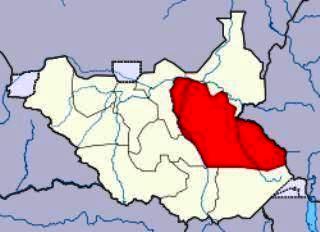Improper waste dumping threatens communities in Jonglei state
September 22, 2015 (BOR) -The recent urbanisation and rise in population has resulted into wastes that have polluted the environment in South Sudan’s largest state of Jonglei.

The stinking smell and fear of possible water and food contamination has forced communities in Makuach payam to fight improper waste disposal in their areas.
James Makor Bol, a youth leader in the area, demanded relocation of the dumping site.
“We see that this will bring problems to people, it can poison us, it can kill birds, goats and cows”, he told Sudan Tribune.
The United Nations Mission in South Sudan(UNMISS) has in the past been accused of collecting sick dogs and dumped them at the garbage site. The sickness seen in these dogs had not been identified but Makor said these dogs later on moved to their village with wounds over their mouths, which he said would contaminate the residents.
“What we detested most is that UNMISS brought abnormal dogs and put them here. These dogs have sickness that remove the inner layers in their mouths, causing wounds. They are now living in this community. These dogs contaminate people here”, he said.
Makor said goats, sheep cattle and wild animals drink sewage water, which could in turn poison people.
“If someone gets poison, the person who brings garbage here will take responsibility. If we are asked to find another place for putting garbages, we will show them”, he added.
Matata Lagu Fred, one of the charcoal makers in the village had been coming here to collect onions, tomatoes and used oil to make their own food in the bush.
For him, it was an advantage to have the garbage dumped in that particular place.
“We are working in the bush producing charcoals, if we need anything we come to the garbage site, open and pick what is inside here for instant oil, onion, and tomatoes. It takes us a lot of time to go to the market and buy these things. That is why we come to pick from the garbage the ones that are good to be eaten”, said Matata.
The assessment made by Makuach payam about the effects of improper waste dumping showed that the effects were dangerous to human life.
“Expired eggs are one of the most common causes of foodborne illness. Eating them can cause mild symptoms ranging from abdominal discomfort, and diarrhoea to full-blown food poisoning to ordinary people feeding from them eating expired food can be poisonous”, partly stated the report extended to Sudan Tribune.
Citizens recommended relocation of the site to far places inaccessible to locals by foot.
State municipality and Bor county officials were reluctant to comment on the matter.
(ST)
